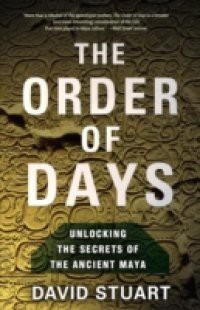The world's foremost expert on Maya culture looks at 2012 hysteria and explains the truth about what the Maya meant and what we want to believe.Apocalypse 2012: An Investigation into Civilizations End. The World Cataclysm in 2012. 2012: The return of Quetzalcoatl. According to many of these alarmingly titled books, the ancient Maya not only had a keen insight into the mystical workings of our planet and the cosmos, but they were also able to predict that the world will end in the year 2012.David Stuart, the foremost scholar of the Maya and recipient of numerous awards for his work, takes a hard look at the frenzy over 2012 and offers a fascination (and accurate) trip through Mayan culture and belief. Stuart shows how the idea that the "end of the Mayan calendar," which supposedly heralds the end of our own existence, says far more about our culture than about the ancient Maya. The Order of Days explores how the real intellectual achievement of ancient Maya timekeeping and worldview is far more impressive and remarkable than any of the popular, and often outrageous, claims about this advanced civilization.As someone who has studied the Maya for nearly all of his life and who specializes in reading their ancient texts, Stuart sees the 2012 hubbub as the most recent in a long chain of related ideas about Mesoamericans, the Maya in particular, that depicts them as somehow oddball, not "of this world," or as having some strong mystical link to other realms.Because the year 2012 has no prominent role in anything the ancient Maya ever actually wrote, Stuart takes a wider look at the Maya concepts of time and their underlying philosophy as we can best understand them. The ancient Maya, Stuart contends, were worthy of study and admiration not because they were strange but because they were altogether human, and they developed a compelling vision of time unlike any other civilization before or since.

